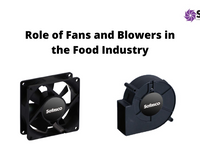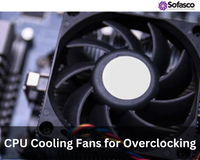HVAC is an acronym for heating, ventilation, and air conditioning. The HVAC systems are an integral setup of three processes - heat addition, heat extraction, and conditioning. Certainly, HVAC systems are installed almost everywhere including homes, industrial locations, food processing stations, organic warehouses, marine systems, and so on. The HVAC systems are often utilized for atmospheric conditioning according to the need of the human body and industrial conditions. It is essential to know what HVAC is, what its fundamental components of it are and how it works. Read this post to know these answers.
What is HVAC System?
The heating, ventilation, and air conditioning (HVAC) system is an integrated setup that can heat or cool the atmospheric air while conditioning the air quality based on requirements. The HVAC systems can be implemented for tasks like cooling, heating, moisture control, dust removal, and oxygen replenishment in an indoor location.
What are Components of HVAC System?
The HVAC system is an integrated mechanical setup that involves several mechanical products as fundamental components of the system. Although the HVAC systems can be customized based on operational requirements, the list of components remains the same. The following are components of the HVAC system.
- Air Return Setup
- Air Filters
- Electronic Heating Elements
- Exhaust Outlet
- Compressors
- Blowers
- Coil
HVAC System Working Principle
The general working principle of an HVAC system is described below.
- To trigger the function of an HVAC system, the air return setup is activated. This air return setup acts as an entry and exit point of a ventilation cycle, which remains continuously active throughout the operation of an HVAC system. The outside air is sucked inside the room with the help of industrial axial fans, and the inside air is pushed outside the room with the help of an exhaust fan unit.
- The air passes through the air filters during the intake phase itself and dust and other bacterial matter are filtered out.
- Further, one of the following two activities can be performed under temperature control via an HVAC system.
- Air Heating: If the heating of air is required, the heating unit of the HVAC should be activated. The heating operation in the HVAC setup makes use of electronic heating elements. The heating element can be an electronic heater, induction coil, thermostats, etc. The heating element generates a heated region in the path of suction air, as the air passes through the heated region it warms up. This way, warm air is injected inside the room.
- Air Cooling: The cooling unit is activated to cool the air. In the cooling unit, the air is passed through a coil, which is a part of a heat exchanger. The heat exchangers can be of shell and tube or cross-flow coil type. The exchanger unit consists of a refrigerant, which ejects the heat from suction air, and only cooled air is injected into the room. The cooling units are integrated with a compressor which is responsible for liquefying the refrigerant.
Cooler or heated air is injected inside the room by using an industrial blower fan unit.
Note: Humidification or dehumidification of air is achieved with effecting heating or cooling itself, however in dry regions, the spray humidifiers may be a part of HVAC systems.
To achieve effective HVAC cooling and heating results, the quality components must be sourced from prominent suppliers like Sofasco. The UL certified company offers high quality, RoHS compliant HVAC products like industrial axial fans, AC and/or DC industrial blower fans since 1981.













